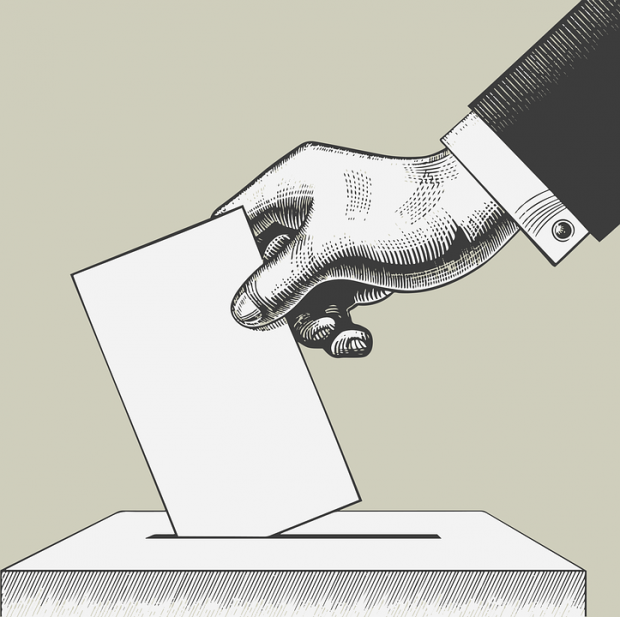Populism in Pakistan: Myth and Reality
 “Populist promises to reverse every tough decision are nothing but empty rhetoric, irresponsible leadership, and bad politics. They are not the solution to Ireland’s problems”, Enda Kenny, an Irish politician, had once said. His saying could be applied to Pakistan in its entirety if the word ‘Ireland’ is replaced with ‘Pakistan’, where a so-called populist party – Pakistan Tehreek-e-Insaf PTI (Justice Movement), led by former cricketer Imran Khan, has come into power very recently.
“Populist promises to reverse every tough decision are nothing but empty rhetoric, irresponsible leadership, and bad politics. They are not the solution to Ireland’s problems”, Enda Kenny, an Irish politician, had once said. His saying could be applied to Pakistan in its entirety if the word ‘Ireland’ is replaced with ‘Pakistan’, where a so-called populist party – Pakistan Tehreek-e-Insaf PTI (Justice Movement), led by former cricketer Imran Khan, has come into power very recently.
Mr. Imran Khan was sworn-in as the new premier of country in August last after his party was declared victorious by the Election Commission of Pakistan in July 25 general elections despite allegations of massive rigging. Certain pro-PTI observes are portraying Mr. Imran Khan as ‘Populist Leader’ after Zulfiqar Ali Bhutto, the founding chairman of Pakistan Peoples’ Party (PPP) and the first elected premier of country, who’s party won the 1970 general elections, and after serious political crisis and Indo-Pak War of December 1971, he took over first as President and then as Prime Minister. The pro-PTI observers also believe that Pakistan has again joined the ranks of countries led by a populist politician.
However most of the independent analysts out-rightly reject such notion. They are making definitive comments about the implications of the July 25 Pakistan elections saying that it brought even more ambiguity into the outlook for the country’s future.
The independent observers wonder how deep Mr. Imran Khan’s populism goes. According to them populists of either right or left have one objective as their primary aim: to get rid of the establishment and deconstruct the institutions of the state and reconstruct them in their own image in order to use them to increase their hold on to power. The fact that Imran Khan ran against the civilian establishment does not prove his populism is a deeply held belief rather than a convenient political vehicle. If, while in power, he continues the assault on Pakistan’s increasingly fragile institutions, it may be just because it is their weakness that helped bring him to power.
Many countries led by populist leaders have retreated from under-developed forms of democracy to some stage of authoritarianism. These countries often still call themselves democracies, asserting that as they have elections they must be democracies
One difference for sure from the previous perceived populist leader Zulfiqar Ali Bhutto is that Imran Khan is a populist of right. Another is that Bhutto fought against military dictatorship and the Establishment, and struggled for restoration of democracy. He was an internationally acclaimed statesman who steered the country out of grave political and economic crisis. He was the person who gave a constitution to the country.
On the contrary, Khan sought the support of Establishment, consisting of military and civil bureaucracy and continued his ‘street politics’ all the past five years against the civilian government. The independent observers have opined that there are many elements of Pakistan’s political structure that would work against Khan’s so-called populist tendencies. First, Pakistan is, at best, a rather distorted semi-democracy where strategic, security, and much foreign policy is decided by an unelected, and basically unaccountable, institution — the army. Even in most authoritarian states, except those in which the military has elected itself by seizing power, armies are subordinate to the civilian authorities. Second, Khan’s PTI did not secure a majority in the Pakistan’s National Assembly and he heads a coalition government.
Moreover, the PTI had enough pledges from small coalition parties and independent candidates while forming a government. Within no time, the PTI government looked under immense pressure of such parties. This situation has proved that historically populists do not sit easily in parliamentary coalitions.
Further, the PTI government and its leader have taken lots of U-turns since assuming the power. For example acting against the pledges made to the nation before elections, the PTI government imposed heavy taxes, raised the prices of more than 750 consumer items, petroleum, gas and electricity and brought the country under the burden of billions of dollars of foreign loans.
For all these U-turns, premier Khan is now known as ‘U-turn Khan’ and hardly within three months of power, his so-called ‘popularity graph’ has drastically declined and it seems that the notion of PTI and its leader’s ‘populism’ is just a myth rather than reality.
By Nasir Aijaz

























































